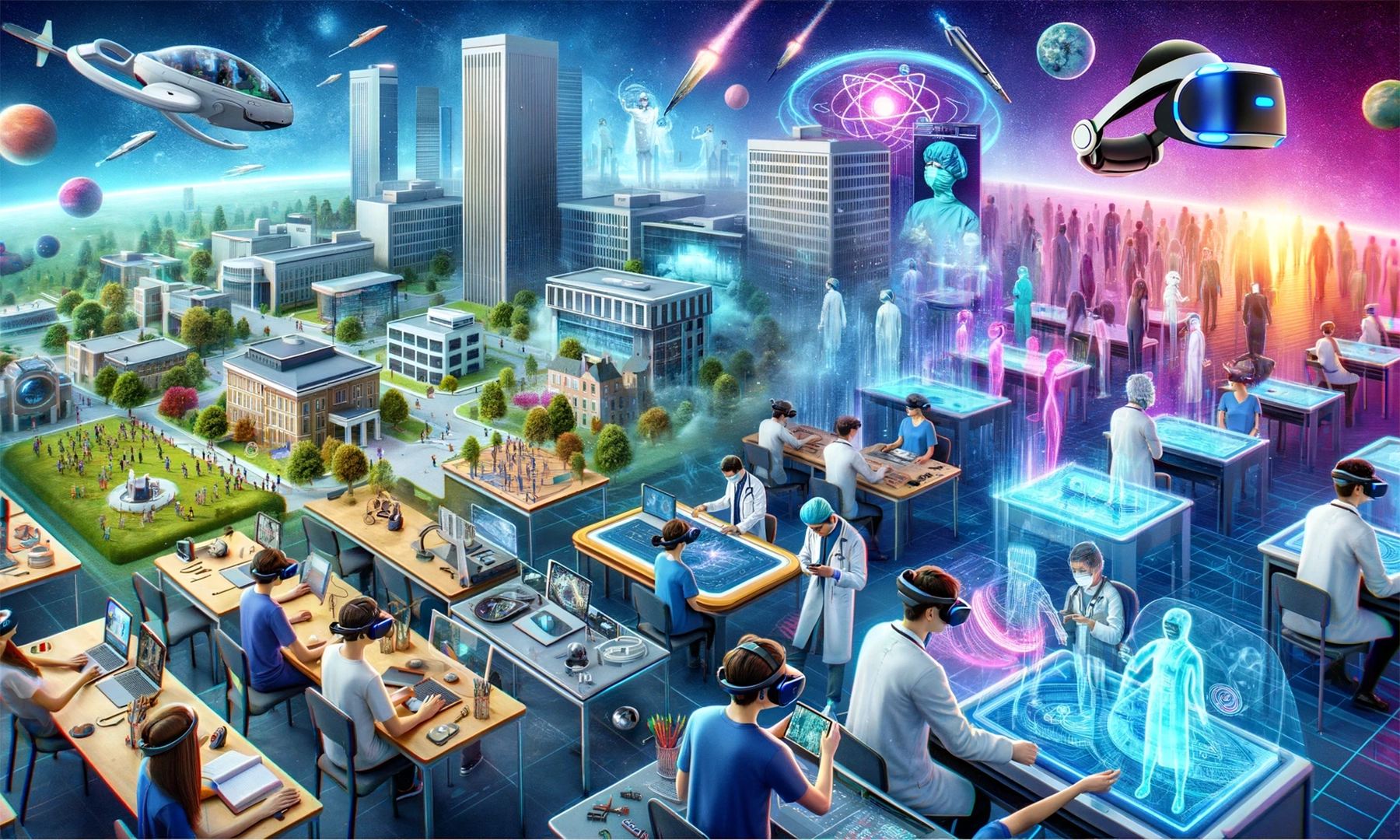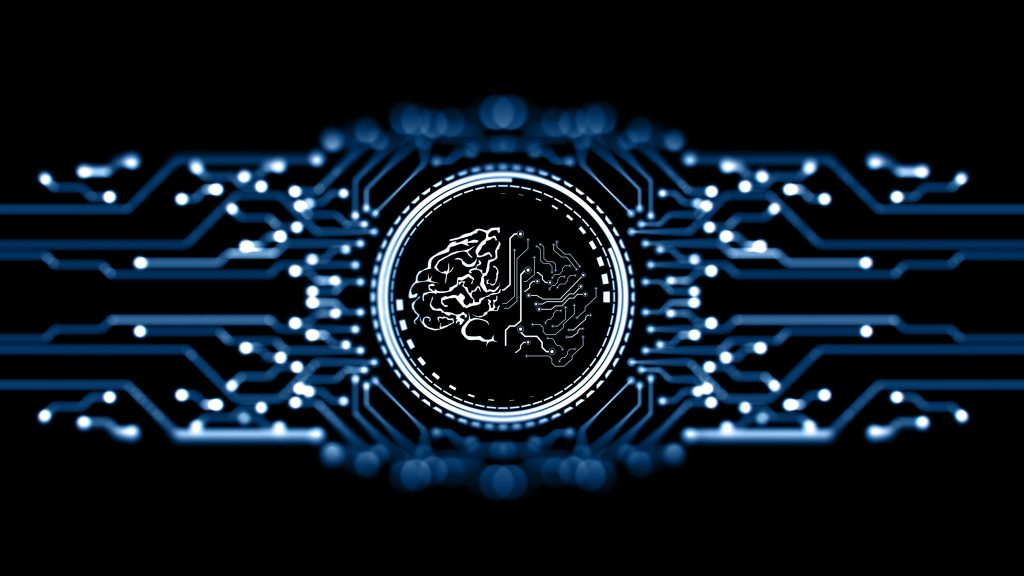Introduction to AI and its potential impact

Artificial Intelligence (AI) is no longer a concept confined to the realms of science fiction. It has seamlessly woven itself into our daily lives, driving innovations across various sectors—from healthcare and finance to entertainment and education. The potential impact of AI is enormous; it can enhance efficiency, improve decision-making, and even solve complex problems that humans struggle with. However, as we embrace this powerful technology, it’s crucial to pause and reflect on its ethical implications.
With great power comes great responsibility. As AI systems become more autonomous and pervasive, questions about their ethical use arise. Are we prepared for the consequences of these technologies? How do we ensure they serve humanity positively without crossing moral boundaries? Understanding why guidelines are essential in navigating the complexities of AI usage will illuminate both the risks involved and the paths toward responsible innovation.
Examples of unethical use of AI

Unethical use of AI is more common than many realize. One glaring example is facial recognition technology, which has been misused for mass surveillance. This not only invades privacy but can also lead to wrongful accusations.
Another troubling instance involves biased algorithms in hiring processes. Companies may unknowingly favor certain demographics while excluding others based on flawed data sets. This perpetuates existing inequalities and denies opportunities to deserving candidates.
Additionally, deepfake technology poses significant risks. It can create realistic yet fake videos that manipulate public perception or damage reputations without consent.
Social media platforms have also exploited AI to spread misinformation, leading to societal division and chaos. Such actions demonstrate how powerful tools can be twisted for harmful ends when ethical guidelines are absent or ignored.
The importance of ethical guidelines in the development and use of AI

Ethical guidelines in AI development are crucial for fostering trust and accountability. As artificial intelligence systems become more integrated into daily life, their decisions can significantly impact individuals and society.
These guidelines help prevent biases that may arise from flawed algorithms or incomplete data sets. Without proper ethical oversight, there’s a risk of perpetuating inequality and discrimination.
Moreover, establishing clear standards ensures that developers prioritize human welfare over profit. It compels creators to consider the broader implications of their technologies.
Transparency is another essential aspect. When AI operates under defined ethical frameworks, users gain insight into how decisions are made, promoting confidence in AI solutions.
Incorporating ethics at every stage—from design to deployment—allows us to harness the full potential of AI responsibly while safeguarding fundamental rights. This proactive approach will ultimately benefit everyone involved in the evolving landscape of technology.
Current efforts towards establishing ethical guidelines for AI
Various organizations are actively working on ethical guidelines for AI. The European Union has proposed regulations that emphasize transparency and accountability. These regulations aim to create a framework for responsible AI development.
Additionally, institutions like the IEEE have established standards focusing on the ethical implications of emerging technologies. Their efforts include promoting fairness, privacy, and safety in AI systems.
Tech giants also play a role in this movement. Companies such as Google and Microsoft have released their own sets of ethical principles guiding their AI initiatives. They advocate for inclusivity and user-centered design.
Moreover, research collaborations between academia and industry are becoming more common. These partnerships seek to understand the social consequences of AI better while fostering an environment where ethics is prioritized alongside innovation.
Engagement from diverse stakeholders ensures that multiple perspectives shape these guidelines, making them more comprehensive and effective.
Potential consequences of not having ethical guidelines for AI
Without ethical guidelines, AI can perpetuate biases. Algorithms trained on flawed data may reinforce stereotypes. This could lead to unfair treatment in hiring, lending, and law enforcement.
Privacy concerns also rise sharply. AI technologies can infringe on personal freedoms by collecting and misusing sensitive information. A lack of oversight allows malicious actors to exploit these vulnerabilities.
Moreover, the absence of regulations fosters mistrust among users. People are less likely to embrace advancements if they feel their rights are at risk. This hesitation stifles innovation and slows progress in a field that thrives on trust.
In extreme cases, unchecked AI systems might make life-altering decisions without accountability. Imagine autonomous vehicles or healthcare algorithms malfunctioning due to poor ethical standards; the consequences could be dire.
These potential outcomes highlight an urgent need for comprehensive frameworks governing AI development and deployment.
Balancing innovation and responsibility in the field of AI
Innovation in AI has the power to transform industries and improve lives. However, with great potential comes significant responsibility.
As technology advances, the risk of misuse or unintended consequences grows. Striking a balance between progress and ethics is crucial. Developers must ensure their creations serve humanity rather than harm it.
Collaboration among technologists, ethicists, and policymakers can help navigate this complex landscape. Open dialogues foster transparency and trust while guiding responsible innovation.
Moreover, fostering a culture of accountability within organizations encourages teams to prioritize ethical considerations throughout the development process.
Investing time in understanding societal impacts is essential for sustainable growth in AI technologies. When innovation aligns with ethical guidelines, we pave the way for a future where technology enhances our world responsibly.
Conclusion: The need for continuous evaluation and improvement of ethical guidelines in the rapidly advancing world of AI
As we navigate the complexities of artificial intelligence, the need for robust ethical guidelines becomes increasingly clear. The rapid advancements in AI technology present both incredible opportunities and significant challenges. Therefore, it is crucial to ensure that these innovations are developed and implemented responsibly.
The potential consequences of neglecting ethical considerations can be severe. From biased algorithms to invasion of privacy, the stakes are high. Continuous evaluation and improvement of ethical standards will help mitigate risks associated with misuse or misinterpretation of AI technologies.
Moreover, fostering a culture where innovation coexists with responsibility is essential. Stakeholders must remain vigilant as they integrate AI into various sectors, ensuring that guidelines evolve in tandem with technological progress.
In a world where AI capabilities expand daily, ongoing dialogue about ethics remains vital. This commitment not only safeguards public trust but also paves the way for sustainable development within this transformative field. Embracing this responsibility empowers us all to shape an equitable future powered by artificial intelligence.










